Looking pumped despite the odds, jogging casually in a crowded room, sinister shadowy lighting, a casual walk with a gaggle of schoolchildren, obligatory football something, and a rather snazzy jacket – it’s just another manic Monday:
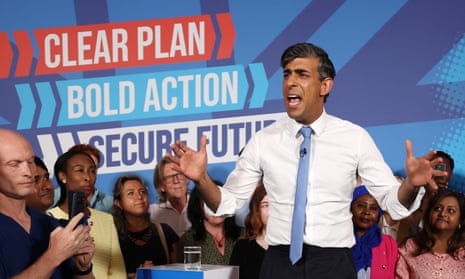

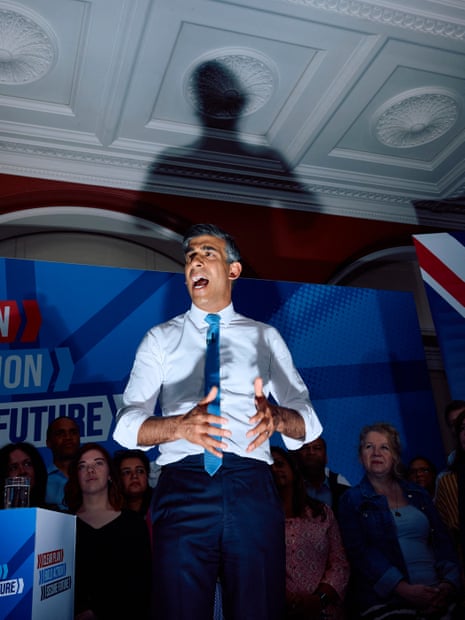
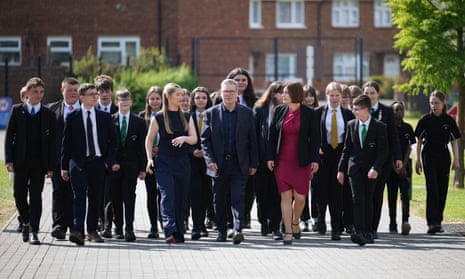
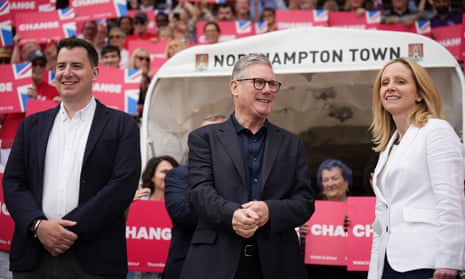
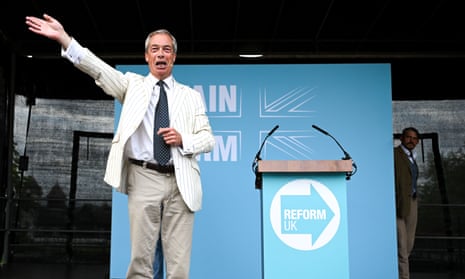
Looking pumped despite the odds, jogging casually in a crowded room, sinister shadowy lighting, a casual walk with a gaggle of schoolchildren, obligatory football something, and a rather snazzy jacket – it’s just another manic Monday:






Scotland’s First Minister has called on Keir Starmer to “think again” and commit to spending £28bn a year on green policies, PA reports:
John Swinney said he was making a “genuine and direct appeal” to Starmer.
A major U-turn in February saw Labour abandon its plans to spend £28bn a year on environmental projects – with Starmer saying at the time his party had had to “readjust” its plans.
Swinney’s comments came ahead of the SNP launching a climate and just transition manifesto, which sets out plans for an annual investment of £28bn. He added: “I would much rather be straight with the British public than make a promise I can’t keep.”

Swinney insisted that spending less than that would be insufficient, given the threat posed by climate change.
The SNP leader said:
Today, I am making a genuine and direct appeal to Sir Keir Starmer to think again and commit again to £28bn of investment to achieve green growth and reach net zero.
We believe that anything that falls below that level of ambition and investment will fail to meet the scale of this challenge and fail to grasp the opportunity of the emerging green economy.”
However much you check yourself against groupthink, we all swim in the same ocean and meet the same fish. Between the sight of a triumphant Nigel Farage parading around Clacton, the drip, drip effect of vox pops saying all politicians are the same and the spectre of far-right victories in Europe, I missed one minor detail: I’m really excited about the election.
All this work, furiously managing my own expectations, worrying about the future, muttering about Labour and its timidity, and I haven’t extinguished the delight. Whichever way you cut it, we seem on the brink of getting rid of the Tory government. The sound of them on the radio, audible defeat cutting through the habituated pomposity; some day soon, we won’t have to wake up to that:
The Conservatives are rerouting resources to defend at least three seats held by cabinet ministers with majorities of more than 20,000 as the party retreats to safer ground.
Tory activists and candidates in nearby areas have been diverted to campaign for James Cleverly, the home secretary, Oliver Dowden, the deputy prime minister, and Steve Barclay, the environment secretary.
Cleverly held his Braintree constituency by 24,673 votes in 2019, but some senior Tories believe the Essex seat, which elected Labour MPs in 1997 and 2001, could be vulnerable.
Barclay held his North East Cambridgeshire seat by 29,993 votes in 2019 and Dowden held Hertsmere in Hertfordshire by 21,313. Neither constituency has ever returned a Labour MP before.
All three seats are in the southern Tory heartlands, which Labour is heavily targeting at this election. They have been altered by the boundary review, but still have Conservative majorities of more than 20,000, according to 2019 modelled results for new boundaries.
The Guardian’s Hazel Sheffield and Larry Elliott report: The crisis of poverty that has taken root in the UK over the past 14 years has been laid bare in two reports that reveal the devastating effects low wages and price increases on the lives of 900,000 children.
With both main parties proposing tough welfare spending plans, reports have highlighted the link between rising child poverty and slow wage growth under five Conservative governments since 2010 – the slowest growth since the second world war.
Research by the Trades Union Congress (TUC) found that over the past 14 years, an additional 1,350 children a week in households with at least one working parent had been dragged into poverty.
Paul Nowak, the general secretary of the TUC, said: “No child in Britain should be growing up below the breadline. But under the Conservatives we have seen a huge rise in working households being pushed into poverty. We urgently need an economic reset and a government that will make work pay.”
Wage stagnation was part of a “toxic combination” of insecure work and cuts to social security that had had a devastating impact on household budgets, the TUC found, increasing the number of children in poverty with at least one parent in work by 900,000 between 2010 and 2023.
The Institute for Fiscal Studies thinktank said on Monday that 30% of children now live in households below the official poverty line, up from 27% in 2010. Over the course of the next parliament, an additional 670,000 children will be affected by the two-child limit, which restricts eligibility to benefits, it said.
Senior Conservatives and campaigners are calling for a ban on political bets by MPs, as the Gambling Commission was urged to look into another £500 wager connected with the growing election gambling scandal, Rob Davies, Jessica Elgot and Matthew Weaver report.
The former Tory leader Iain Duncan Smith said parties should examine the rules when parliament returns amid growing outrage over Tory candidates and aides allegedly staking money on politics. The former defence minister Tobias Ellwood also said there should be new restrictions.
The Conservatives have launched their own inquiry into whether politicians or officials gambled on the timing of the election. Rishi Sunak was forced to deny having placed any bets himself and told reporters he was not aware of any further candidates under scrutiny.
“We’ve been conducting our own internal inquiries and of course will act on any relevant findings or information from that and pass it on to the Gambling Commission,” he said.
The Gambling Commission has been urged to investigate a flurry of unusual activity around the time Sunak called the election, an industry source told the Guardian.
Welcome to the Guardian’s live coverage of the UK General Election with me, Helen Sullivan.
Two reports have revealed the devastating effects of low wages and price increases under Conservative rule on the lives of 900,000 children, the Guardian’s Hazel Sheffield and Larry Elliott report.
Reports have highlighted the link between rising child poverty and slow wage growth under five Conservative governments since 2010 – the slowest growth since the second world war. Both main parties are proposing tough welfare spending plans.
Research by the Trades Union Congress (TUC) found that over the past 14 years, an additional 1,350 children a week in households with at least one working parent had been dragged into poverty.
Paul Nowak, the general secretary of the TUC, said: “No child in Britain should be growing up below the breadline. But under the Conservatives we have seen a huge rise in working households being pushed into poverty.”
More on this shortly. Meanwhile here is what is coming up this morning:
9am: Home secretary James Cleverly and shadow home secretary Yvette Cooper go head-to-head on immigration in an LBC debate hosted by Nick Ferrari.
9.30am: Scottish Labour leader Anas Sarwar, shadow chancellor Rachel Reeves and Scottish Labour deputy leader Jackie Baillie will visit a major business in West Dunbartonshire. They will be accompanied by local candidate Douglas McAllister. The Scottish Conservatives are campaigning in Ayrshire.
9.45am: Scottish Liberal Democrat leader Alex-Cole Hamilton will be in Fife, where he will discuss his party’s plans to get everyone faster access to GPs and create world-class mental health services.
11.30 Scotland’s Deputy First Minister Kate Forbes will be on the campaign trail in East Lothian. She will join the SNP candidate for Lothian East, Lyn Jardine.
11.35am: Rishi Sunak, Foreign Secretary David Cameron and home secretary James Cleverly welcome the Emperor and Empress of Japan, who are on a state visit.